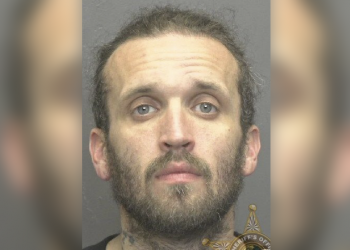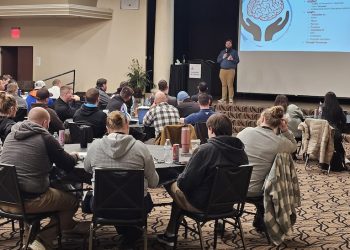Bloomington, Indiana – Two programs run by the Department of Economic and Sustainable Development of the City of Bloomington will assist residents, charities, and small businesses in the city’s boundaries in making the switch to solar energy in 2023.
The Solar, Energy Efficiency, & Lighting Program and the Bloomington Green Home Improvement Program were both introduced in 2021 with the goal of assisting with the financing of renewable energy installations so that Bloomington may use more clean energy.
According to Mckaylyn Lynch, who oversees the Department of Economic and Sustainable Development’s sustainability programs, this year both programs will work with MPI Solar as their solar installer. After their program applications are approved, everybody who installs solar through SEEL and BGHIP collaborates with MPI Solar.
According to Lynch, the application process for SEEL is being divided into cohorts in order to manage the volume of projects being worked on, but the application period for BGHIP is ongoing. The deadline for SEEL’s first cohort applications is February 24; a week later, applications for cohort two will be accepted.
According to David Mann, the president and founder of MPI Solar, they have been approved to work with the city as its solar energy provider for various solar programs starting in 2023. Mann stated that the Community Kitchen, one of the approved applications for SEEL, will be working with them soon on design and installation specifics.
“I have to give kudos to the city for developing this program and making it available to entities within the city limits,” Mann said.
According to Lynch, BGHIP focuses on homeowners. In order to offer residents in Bloomington cheaper interest rates on financing for energy efficiency programs and solar installations, the program has collaborated with Hoosier Hills Credit Union and Clean Energy Credit Union.
Lynch claimed that since the program’s start in 2021, over $20,000 has been given to residents in the form of direct refunds. The agreements allow for subsidized loans and thousand-dollar reimbursements based on income for homes that make $150,000 or less annually.
According to her, SEEL is comparable to BGHIP but concentrates on Bloomington’s nonprofits and commercial establishments, offering energy estimates and collaborating with finance partners for these solar projects. According to her, the SEEL program would now include small enterprises as of 2023.
According to Darrell Boggess, a member of the SIREN steering committee, Bloomington has also joined the Solar Indiana Renewable Energy Network, a nonprofit volunteer organization with a focus on promoting and educating the use of solar power systems.
“We see our role as educators and communicators,” Boggess said. “Fundamentally we’ve recognized for a long time that we don’t have more solar energy in this part of the country because people don’t understand it or know who to talk to about it.”
According to Boggess, the city obtains incentives for larger installations to have more solar energy as well as federal funding for the conversion of Bloomington properties to solar energy.
The City of Bloomington has taken many decisions to transition to solar energy as a result of its cooperation with SIREN during the past six years, according to Anne Hedin, a member of the SIREN steering committee. Hedin claimed that SIREN collaborates with the city to decide which vendors to use for the Solarize Bloomington Program, which aids participants in negotiating solar adoption prices and empowers customers to make better energy decisions.
“We don’t make city decisions. We just help consumers make better decisions about solar energy,” Hedin said.




















































































